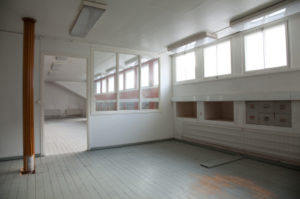
FEI Performs Air Quality Assessments that Provide Cost-efficient Solutions to Identify and Target the Source
FEI has highly qualified Engineers/Industrial Hygienist/Licensed Mold Inspectors with 20+ years experience who understand how indoor air quality, the HVAC systems and energy consumption are inter-related, which allows FEI to provide the level of service best-tailored to our clients’ needs. As much as (80%) of indoor air quality (IAQ) complaints can be a result of a poor performing ventilation system. IAQ assessments mean more than simply generating data. Although scientific measurements are critical, FEI carefully listens to our clients’ issues and observations.
FEI Utilizes State-of-the-art IAQ Monitoring, Infrared Technology, Sampling Equipment and Fully Accredited Laboratories to Analyze for Airborne Mold Bacteria and Airborne Contaminants
FEI conducts a thorough visual inspections of areas of concern, fresh air inlets, entrances, mechanical rooms, air handling units and exhaust systems. Using the latest state-of-the-art IAQ monitoring, infrared technology and sampling equipment, FEI measures temperature, relative humidity, carbon monoxide, carbon dioxide, volatile organic compounds, breathable airborne particles/gases and moisture control of building materials. We collect air samples and have qualified, fully-accredited laboratories analyze them for airborne mold, bacteria, gases and dust. We compare our findings to national and international standards technical guide to indoor air quality, then make professional recommendations to address indoor air quality problems.
FEI’s Industrial Hygiene Professionals are on the Leading Edge of the Movement to Ensure that a Safe Work or Living Environment is Maintained
FEI professionals have completed IAQ and mold surveys for industrial, commercial, and residential clients that have efficiently resolved their concerns. FEI utilizes an assessment protocol to determine the extent to which there are indoor air quality problems in buildings, to determine their source(s), cause(s), contaminant pathways, and to recommend appropriate remedial measures as warranted. Although there are no current regulations on indoor air quality, guidelines have been developed from governmental agencies and private professional organizations including recommendations from the Environmental Protection Agency (EPA), the American Conference of Governmental Industrial Hygienists (ACGIH), the Occupational Safety and Health Administration (OSHA), and the American Society of Heating, Refrigerating and Air-Conditioning Engineers, Inc. (ASHRAE). The ASHRAE Standard, 62.1-2010, “Ventilation for Acceptable Indoor Air Quality”, is universally accepted for assessment of indoor air.
FEI’s Indoor Air Quality Services Include:
- Indoor Air Sampling and Testing
- Sick Building Syndrome Investigation
- Odor Investigations
- Mold and Moisture Surveys
- HVAC System Air Movement Studies/Ventilation Studies
- Radon Testing
- Measurement of Carbon Dioxide, Carbon Monoxide, Temperature, and Relative Humidity
- Measurement of Airborne Bioaerosols, Chemicals, and Particles
- Mold Wipe Samples
- Viable and Non-viable Mold Air Sampling (spore counts)
- Total Volatile Organic Compounds (TVOC) and Ozone
